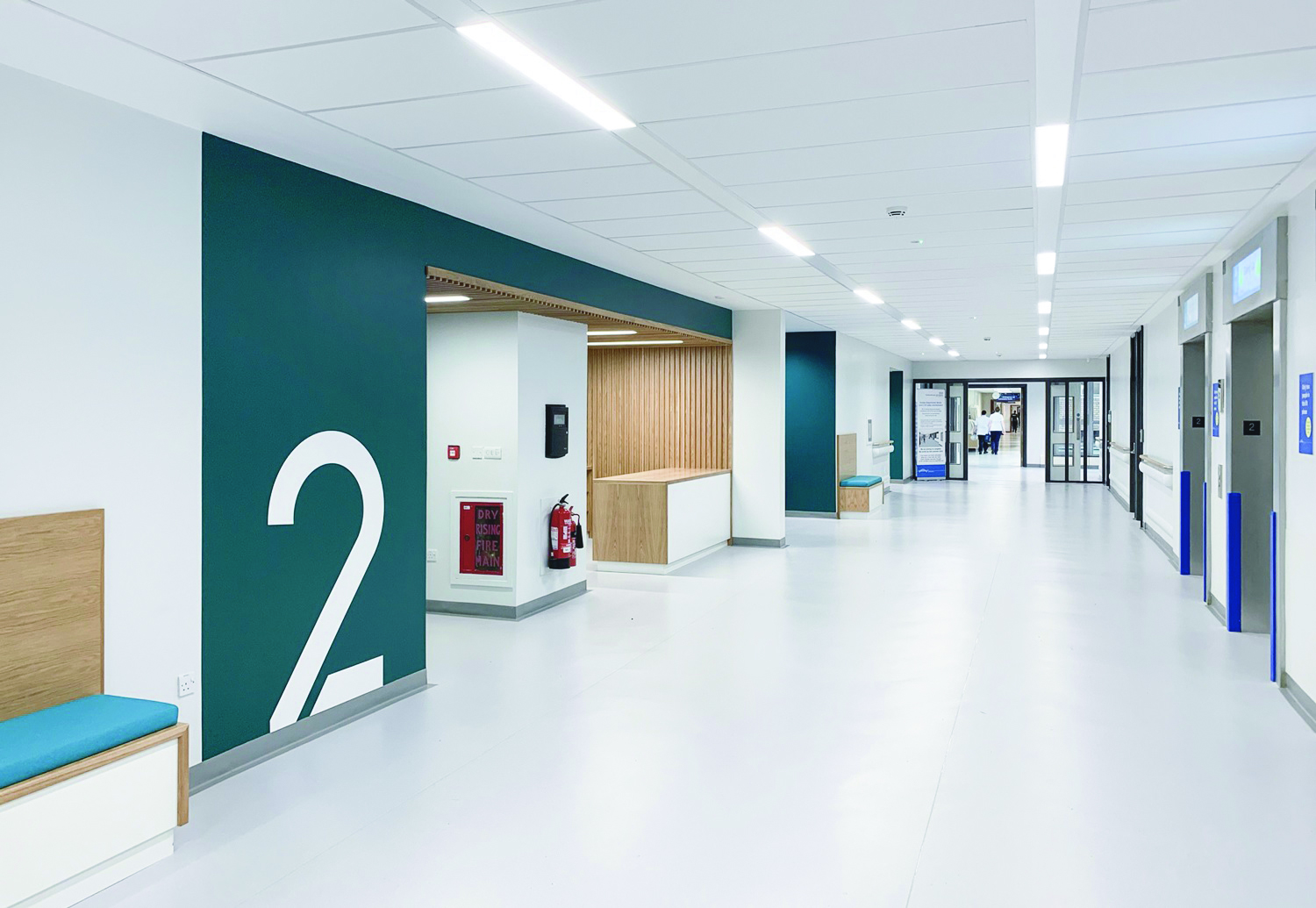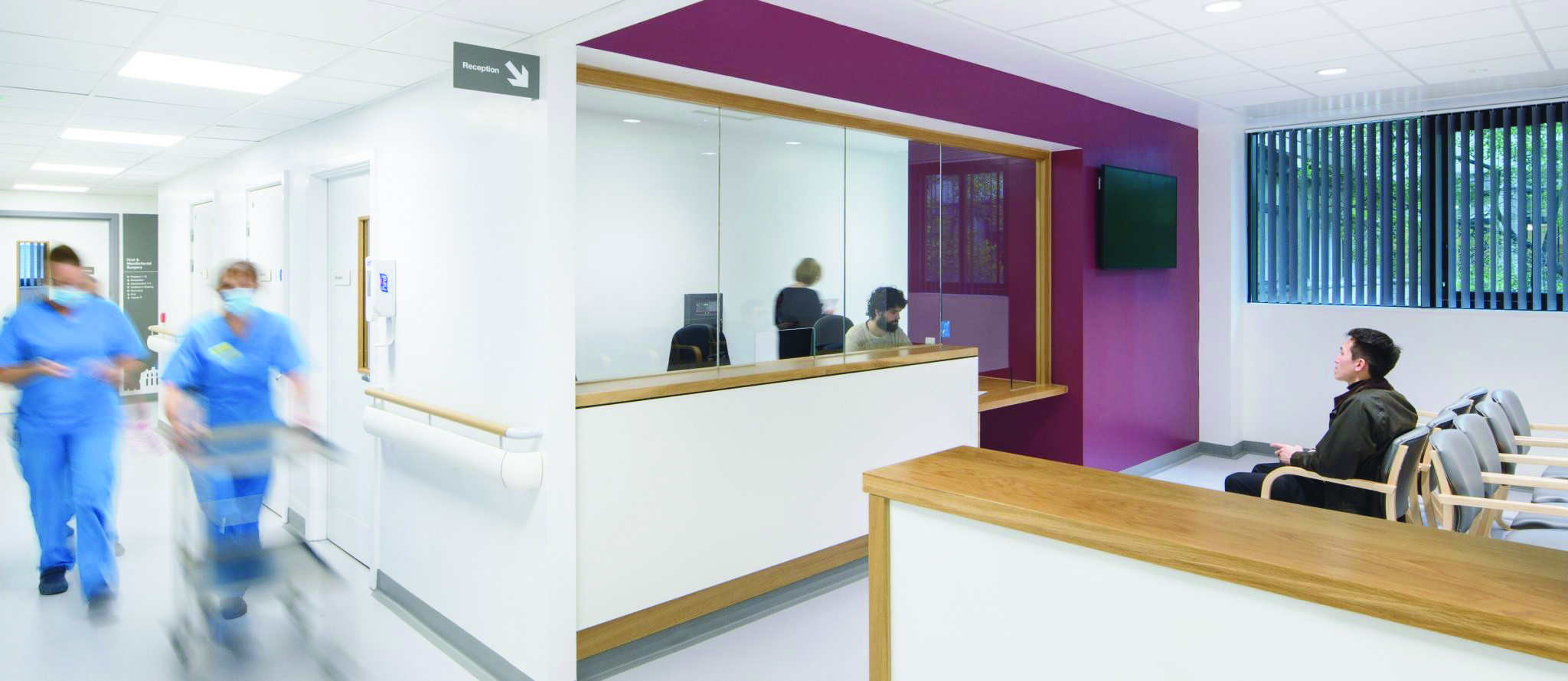
A new design standard has underpinned improvement works at hospitals in Newcastle
Despite the announcement of the Government’s New Hospital Programme (NHP), many NHS acute services are still operating out of buildings that are unfit for modern healthcare practices. And, as a large number of these are not covered by the NHP, for many trusts the only solution is to make the best of what they have through reconfiguration and refurbishment. One example of this approach can be found at Newcastle upon Tyne Hospitals NHS Foundation Trust, where Medical Architecture has recently completed a £5.5m internal improvement project. Forming part of the estates strategy the architects developed with the trust, the internal improvement programme brings a structured and consistent approach to strategically-important refurbishment projects across two hospital sites.
A consistent approach
To ensure consistent outcomes that could be easily replicated across the whole estate, an interior design standard was developed by Medical Architecture in conjunction with the client team. The standard reflects the trust’s corporate image while setting out a design approach which promotes patient wellbeing and recovery. Project lead, Paul Yeomans, explains: “The internal spaces provide an environment for care that is calming and reduces anxiety, while conveying a sense of professional efficiency. “Particular attention is given to design for patients with dementia and frailty, as well as technical standards and guidance compliance, working within the constraints of the existing structures. “The aesthetic is light and bright, with good-quality and well-co-ordinated ceilings, lighting fixtures, and finishes.
Moments of reflection
“And points of interest and identity along the corridors allow spaces to be easily identified, with coloured ‘thresholds’ framing the doors into patient bedrooms and a refined colour palette used throughout to create a composed order to the space. “Murals and artworks have also been integrated to create moments of appeal and reflection.” Working with the trust’s dementia team, an artistic approach to wayfinding was developed, with different rooms and spaces identified by their own unique local landmark. As well as enlivening the spaces, this helps people with dementia and other cognitive impairments to better identify where they are going, reducing confusion and wandering. Yeomans said: “Throughout the design process, 3D views and flythroughs were used to allow user groups to review emerging designs and provide feedback. “And the quality and consistency of design has improved the internal environments that the trust are providing, not only for patients and the public, but also for members of staff.”
Nationwide appeal
The refurbishment programme included the reconfiguration and adaptation of both clinical and non-clinical spaces to create a better quality of environment for patients and staff. Attention to detail was crucial, as space was often limited. This included making sure that furniture was well planned and considered to provide optimal facilities for clinicians. And the quality of spaces has been elevated with well-crafted reception desks and staff bases, quality signage, and a co-ordinated use of materials and colour. Repurposing existing spaces, instead of building new, has also significantly reduced the embodied carbon impact. Yeomans said: “With so many hospital trusts operating out of buildings that are not designed for modern services, and with little capital available for major improvement works, we predict this approach could be replicated across the country. “Creating a design standard has helped to inform all the decisions made on this project and enabled us to create an environment that is futureproofed and much more supportive and therapeutic for patients and staff.”
